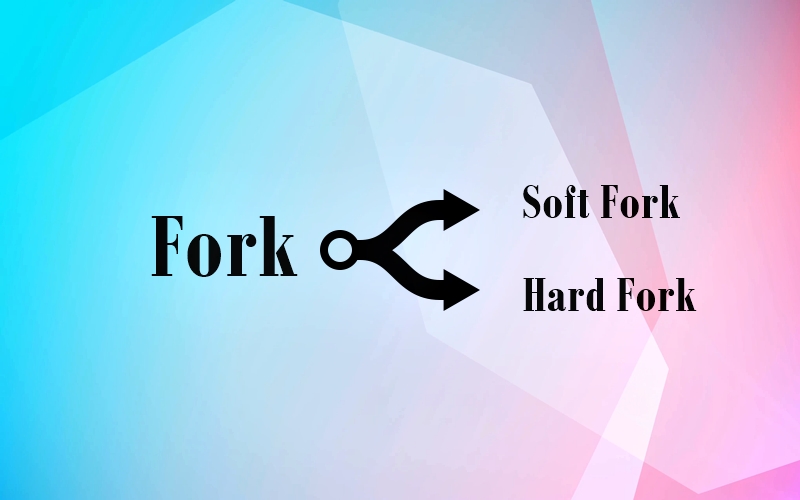If you’ve just entered the world of crypto, you might have heard the word “fork” being used quite often. What exactly is a fork and what does it have to do with blockchain? In today’s article, we shall explain this term as well as its role and importance in the cryptoverse.
A blockchain protocol is a set of rules which define connection, mining and transaction laws for a cryptocurrency. For a block to be a part of the blockchain network, it has to comply with all these rules defined by the protocol.
The decentralized nature of public blockchains means that network participants have to agree on the shared state of the blockchain. A complete consensus amongst participants keeps a single blockchain of verified data which everyone considers to be correct. A fork is a change in the network’s protocol and it can happen for any reason, either to innovate, repair, or simply because the consensus was not reached for a soft fork.
Forks can be split into two main categories: soft forks and hard forks.
What is a Soft Fork?
A soft fork is a blockchain upgrade with backward compatibility. A soft fork is a software upgrade which is backward compatible with preceding versions of the software. Soft forks do not need network nodes to upgrade to keep consensus, because all blocks on the soft-forked blockchain follow the old set of consensus laws in addition to the new ones.
However, blocks that are created by nodes that adhere to the old set of consensus rules will be in violation of the new set of consensus rules, and because of this, they will end up not being used by the upgrading mining majority.
In order for a soft fork to work, a majority of miners have to identify and implement the new set of consensus rules. If this majority is reached, then the older network will become unused, with the newer blockchain being recognized as the ‘true’ blockchain.
An example of a soft fork would be the introduction of a new rule which increases the network block size from 1MB to 100KB. Nodes that have not had the upgrade will keep on seeing incoming transactions as being valid, as these nodes still use the old set of consensus rules as well as the new.
But mining nodes that have not upgraded and which try to mine new blocks will have these blocks rejected, they do not adhere to the new rules. Therefore, the old blockchain is likely to become idle as miners apply the new consensus rule.
Here are a few examples of past soft forks:
- Bitcoin Improvement Proposal (BIP) 66: A soft fork on the signature validation process of Bitcoin.
- Pay to Script Hash (P2SH): A soft fork which generated multi-signature addresses on the Bitcoin network.
What is a Hard Fork?
A hard fork is a permanent split from the previous version of a blockchain. This happens because a new set of consensus rules are implemented into the chain which is not compatible with the older one.
A hard fork can be considered to be a software upgrade which did not have compatibility with the previous versions of the software.
All network participants have to upgrade to the latest version of the protocol in order to be able to keep verifying and validating new blocks. After a hard fork, blocks which are confirmed by nodes that have not yet upgraded to the latest version will be considered invalid.
Nodes which run on the previous version of the software must comply with the new set of consensus rules for their blocks to be valid on the new network
Not every fork will necessarily give the owners of the old blockchain new coins from the forked blockchain, however, when a legit hard fork takes place and creates a new cryptocurrency, it usually happens.
Hard forks can be divided into two sub-categories: a planned hard fork and a contentious hard fork.
Planned Hard Fork
A planned hard fork is a protocol upgrade which has already been announced in advance by the development team. Usually, a high degree of consensus from the project developers and the community is required before the hard fork takes place. Examples of planned hard forks is that of Monero which happened in January of 2017.
Contentious Hard Fork
A well-known case of a contentious hard fork is the Bitcoin Cash hard fork.
Conclusion
Both hard forks and soft forks are important to the blockchain world, as it is the way many other coins appeared and how changes and updates can be made to a certain protocol
